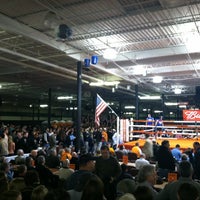

World expositions were platforms for state-of-the-art science and technology from around the world. In these years, world expositions were largely focused on trade and displayed technological advances and inventions. The first era, the era of "industrialization", roughly covered the years from 1850 to 1938. Industrialization (1851–1938) The Yerkes Great refractor telescope mounted at the 1893 World's Fair in Chicago Three eras can be distinguished: the era of industrialization, the era of cultural exchange, and the era of nation branding. The character of world fairs, or expositions, has evolved since the first one in 1851. This expo was the precedent for the many international exhibitions, later called World Expos, that have continued to be held to the present time. It influenced the development of several aspects of society, including art-and-design education, international trade and relations, and tourism. The Great Exhibition, as it is often called, was an idea of Prince Albert, Queen Victoria's husband, and is usually considered to be the first international exhibition of manufactured products. In 1851, under the title "Great Exhibition of the Works of Industry of All Nations", the World Expo was held in the Crystal Palace in Hyde Park, London, the United Kingdom.

This fair was followed by other national exhibitions in Europe. įrance had a tradition of national exhibitions, which culminated with the French Industrial Exposition of 1844 held in Paris. The first industrial exhibition was on the occasion of the coronation of Leopold II as a king of Bohemia, which took place in Clementinum, and celebrated the considerable sophistication of manufacturing methods in the Czech lands during that time period. In 1791, Prague organized the first World's Fair, Bohemia (modern-day Czech Republic). Belgrade, Serbia, which had been selected to host the next Specialised Expo in 2027 will take place from 15 May to 15 August 2027.įurther information: List of world expositions and List of world's fairs Exposition universelle in Paris, 1867 Since the adoption of the 1928 Convention Relating to International Exhibitions, the Paris-based Bureau International des Expositions has served as an international sanctioning body for international exhibitions four types of international exhibition are organised under its auspices: World Expos, Specialised Expos, Horticultural Expos (regulated by the International Association of Horticultural Producers), and the Milan Triennial.Īstana, Kazakhstan, held the most recent Specialised Expo in 2017 while Dubai, United Arab Emirates hosted Expo 2020 (which was postponed to 2021 due to the COVID-19 pandemic). The term "world's fair" is commonly used in the United States, while the French term, Exposition universelle ("universal exhibition" ) is used in most of Europe and Asia other terms include World Expo or Specialised Expo, with the word expo used for various types of exhibitions since at least 1958. These exhibitions vary in character and are held in different parts of the world at a specific site for a period of time, typically between three and six months. It does not store any personal data.Poster advertising the Brussels International Exposition in 1897 Replica of the Gokstad Viking ship at the 1893 Chicago World's Fair Palace of the railways and great connections at the International Exhibition of Hydropower and Tourism in 1925Ī world's fair, also known as a universal exhibition or an expo, is a large international exhibition designed to showcase the achievements of nations.

The cookie is set by the GDPR Cookie Consent plugin and is used to store whether or not user has consented to the use of cookies. The cookie is used to store the user consent for the cookies in the category "Performance". This cookie is set by GDPR Cookie Consent plugin. The cookie is used to store the user consent for the cookies in the category "Other. The cookies is used to store the user consent for the cookies in the category "Necessary". The cookie is set by GDPR cookie consent to record the user consent for the cookies in the category "Functional". The cookie is used to store the user consent for the cookies in the category "Analytics". These cookies ensure basic functionalities and security features of the website, anonymously.

Necessary cookies are absolutely essential for the website to function properly.


 0 kommentar(er)
0 kommentar(er)
